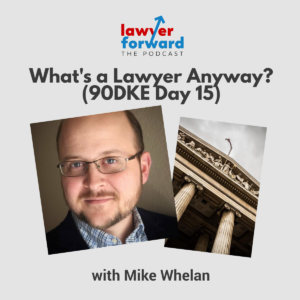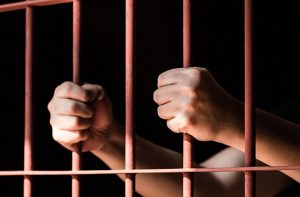Mazel tov to America’s sweethearts Jacob Wohl and Jack Burkman, who finally got a law enforcement agency to notice them. It’s been a long, hard slog, but yesterday, Michigan Attorney General Dana Nessel announced that the pair were finally getting indicted for felony voter intimidation.
Wohl’s solo act has garnered him securities charges in both Arizona and California, and a lifetime ban by the National Futures Association for hinky trading in his teens. He’s also managed to get permanently booted off of Twitter, Facebook, and Instagram — a grand slam!
But the child star’s efforts break into the big time with concocted tales of sexual impropriety by everyone from Dr. Anthony Fauci to Robert Mueller fell flat. Even digging up the supposed escort who cavorted with dominatrix Elizabeth Warren failed to bring him acclaim.
But this latest stunt appears to have finally done the trick. Here’s the text of the robocall which went out to an estimated 85,000 numbers across Michigan, New York, Pennsylvania, Ohio and Illinois.
Hi. This is Tamika Taylor from Project 1599, the civil rights organization founded by Jack Burkman and Jacob Wohl. Mail-in voting sounds great. But did you know that if you vote by mail your personal information will be part of a public database that will be used by police departments to track down old warrants and be used for credit card companies to collect outstanding debts? The CDC is even pushing to use record from mail-in voting to track people for mandatory vaccines. Don’t be finessed into giving your private information to “the man.” Stay safe, and beware of vote by mail.
Subtle.
In Michigan, an estimated 12,000 residents of Detroit were contacted. AG Nessel’s announcement notes that the calls targeted “urban areas with significant minority populations” with the aim to “deter them from voting in the November election.”
And the Attorney General of the United States may not have a problem with that, but in Michigan, that kind of thing gets you charged with voter intimidation and computer crimes.
(To be fair to Ol’ Bill Barr, there does appear to be some kind of live federal investigation into how the pair of bumbling dipsh*ts intended to weaponize the Roger Stone jury questionnaires, as evidenced by a motion that briefly appeared on the docket in the Eastern District of Pennsylvania before being sealed.)
The ever-chatty Wohl attempted to cast doubt on the evidence linking the calls to his cell phone, telling The Daily Beast, “No one in their right mind would put their own cell on a robocall.”
Which may or may not be true, but Wohl’s 2018 smear campaign against Robert Mueller was immediately traced back to him because he used his mother’s cell phone number. So … draw your own conclusions.
Elizabeth Dye lives in Baltimore where she writes about law and politics.
 Jordan Rothman is a partner of The Rothman Law Firm, a full-service New York and New Jersey law firm. He is also the founder of Student Debt Diaries, a website discussing how he paid off his student loans. You can reach Jordan through email at jordan@rothmanlawyer.com.
Jordan Rothman is a partner of The Rothman Law Firm, a full-service New York and New Jersey law firm. He is also the founder of Student Debt Diaries, a website discussing how he paid off his student loans. You can reach Jordan through email at jordan@rothmanlawyer.com.




 Olga V. Mack is the CEO of
Olga V. Mack is the CEO of 










